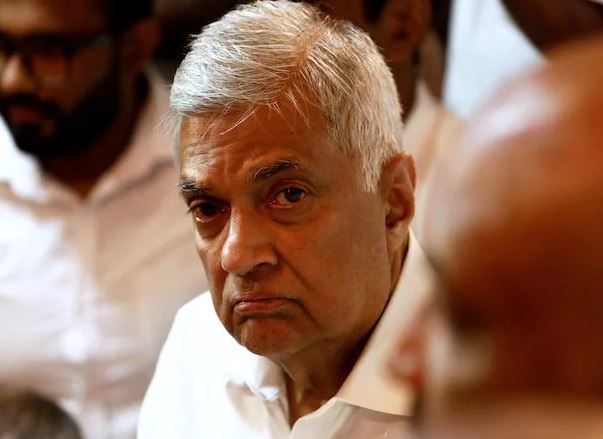Ranil Wickremesinghe, the Prime Minister of Sri Lanka, met with a team from the International Monetary Fund (IMF) that was in the country on Monday to discuss an economic programme that could be supported by a lending arrangement between the global lender and the cash-strapped government. The government is trying to find USD 6 billion to keep the country afloat for the next six months.
In the beginning of this month, Wickremesinghe, who is also the finance minister, held virtual talks with the Managing Director of the International Monetary Fund, Kristalina Georgieva. This came about as a result of Sri Lanka’s decision to seek the assistance of the global lender based in Washington to combat the worst economic crisis it has faced since gaining independence from Great britain in 1948.
The 18th of April marked the beginning of discussions between Sri Lanka and the IMF. According to the Prime Minister’s Office, a delegation from the International Monetary Fund is now in Sri Lanka to continue in-person negotiations with the Sri Lankan authorities in order to come to an agreement at the staff level.
According to the Prime Minister’s Office, the length of the IMF delegation’s stay in Sri Lanka for the purpose of holding discussions will be approximately one week. The future course of action regarding borrowing will depend on the conclusion of agreements reached between Sri Lanka and the IMF staff level.
According to the Colombo Gazette, the International Monetary Fund (IMF) team will be in Colombo from the 20th to the 30th of June to continue discussions on an economic programme that could be supported by an IMF lending arrangement. These discussions will build on the progress made during the virtual mission that took place from May 9-24.
According to a statement released by the International Monetary Fund (IMF), “We reiterate our commitment to help Sri Lanka during this challenging period.”
IMF financial assistance in the range of 4-5 billion US dollars is what Sri Lanka anticipates receiving. Earlier, Prime Minister Wickremesinghe had claimed that Sri Lanka would be able to seek help from other nations if this fund provided it in the form of a loan to be used for that purpose.
In order for the IMF to agree to a rescue package, they have imposed a number of requirements on the country.
After the government of Sri Lanka halted all of the country’s external debt obligations on April 12, it has already begun taking steps to restructure its international loans, which is a requirement for participation in an IMF programme.
Wickremesinghe had previously said that the government’s goal for this year was to repay USD 5 billion in debts, in addition to USD 1 billion that would be used to strengthen the reserves of the nation.
The country is on the verge of going bankrupt, and it is experiencing a severe crisis with its foreign currency, which has led to a default on its external debt. In April, the country made an announcement that it would suspend the repayment of nearly USD 7 billion in external debt that was due for this year, out of approximately USD 25 billion that was due through 2026. Sri Lanka’s overall foreign debt amounts at USD 51 billion.
The International Monetary Fund (IMF) said in May that it wants the government to provide “adequate confidence” that it would restore debt sustainability throughout the process of debt restructuring.
According to previous statements made by the International Monetary Fund (IMF), “since Sri Lanka’s public debt is assessed as unsustainable, approval by the Executive Board of a programme to be supported by the IMF for the country would require adequate assurances that debt sustainability will be restored.”
As a result of the ongoing economic crisis, there is an acute shortage of essential goods such as food, medicine, cooking gas and other fuel, toilet paper, and even matches. As a result, Sri Lankans have been forced to wait in lines outside of stores for hours at a time in order to purchase fuel and cooking gas for the past several months.
